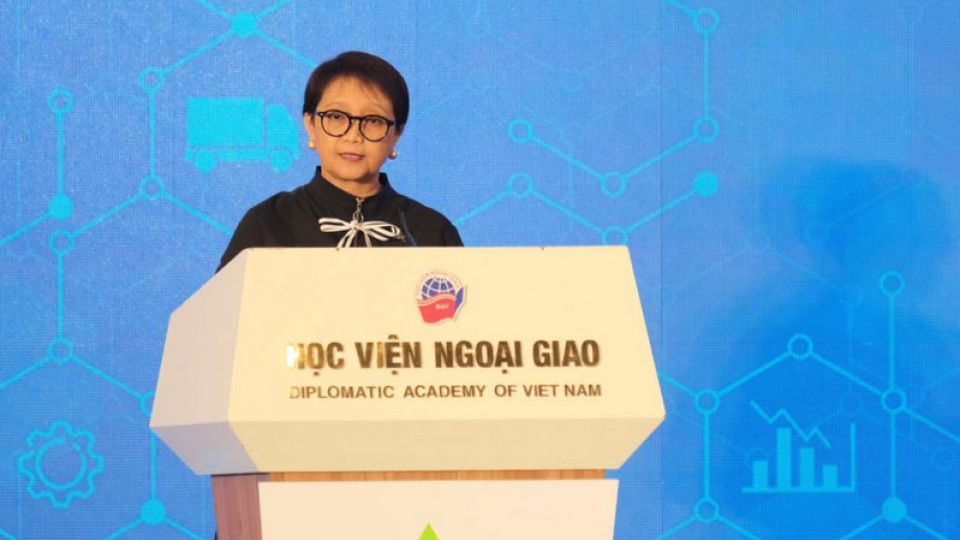April 26, 2024
JAKARTA – ASEAN must play a central role and be prepared to mitigate various security threats posed by geopolitical challenges, Indonesia said during talks in Hanoi where hundreds of diplomats and experts convened to discuss the bloc’s future.
Foreign Minister Retno LP Marsudi said that traditional security threats aside, the region’s food, energy, economic and cyber security were also under threat. She called for cooperation among ASEAN countries in these sectors.
Vietnam hosted the ASEAN Future Forum on Tuesday, discussing ways to address the emerging and existing traditional and nontraditional threats the region is facing.
It was the first forum of its kind, initiated last year by Vietnamese Prime Minister Pham Minh Chinh.
It came against the backdrop of the precarious geopolitical landscape stemming from the muscle flexing between the United States and China, as well as persistent criticisms about ASEAN not doing enough to deal with prevailing challenges, such as the Myanmar crisis and escalations in the South China Sea.
In recent years, most Southeast Asian countries have sought to take economic advantage of the US-China rivalry, although they have also increasingly become concerned over Beijing’s aggressive behavior in the South China Sea.
Never before has ASEAN been faced with “such a multitude of challenges” while sitting “in an ever-advantageous position”, said Pham in his opening remarks.
ASEAN is “the epicenter of fierce strategic competition”, he said, at the same time lamenting the trouble in implementing ASEAN centrality at times and lackluster intra-ASEAN cooperation.
“It is evident that ASEAN faces an ever-increasing need to adopt a strategic and comprehensive vision and bolster its proactivity and responsiveness, so as to seize opportunities and address challenges,” said Pham.
The event in Hanoi was attended by officials, policymakers, experts and business leaders from across Southeast Asia.
‘Socio-economic resilience’
Speaking as a lead speaker in the second session of the event, Retno highlighted that security affairs also included “social matters, the economy and the environment”. She warned that the region was also under additional layers of threats posed by climate change and the ongoing wars in Ukraine and Gaza.
With the situation in the Middle East escalating in recent weeks, Indonesia, as with other countries across the globe, has expressed concern that any further global instability would pose major threats to its economy.
“ASEAN must have a comprehensive approach toward security. The matters of food, energy and financial security have been projected as ASEAN’s chief challenges in the future,” Retno told a press briefing after the meeting.
“This is also why Indonesia’s ASEAN leadership last year advocated for the strengthening of cooperation in [these sectors]. Indonesia wants to fortify ASEAN’s socio-economic resilience,” she added.
Since the COVID-19 pandemic and the subsequent war in Ukraine, the shift in global food distribution has raised concerns over food security in Southeast Asia. ASEAN leaders in recent years have agreed to cooperate with each other to improve regional food resilience.
Indonesia’s ASEAN chairmanship in 2023, meanwhile, was marked by its heavy emphasis on cooperation for economic development. Under Indonesia’s leadership at the time, ASEAN welcomed at least 92 projects valued at around US$38.2 billion. But analysts noted Indonesia’s perceived hesitance toward addressing traditional security matters, skirting around sensitive topics such as China’s aggressive behavior in the South China Sea.
In a video statement, United Nations Secretary-General Antonio Guterres said ASEAN has been “a strong voice for peace, dialogue, disarmament and nonproliferation on the global stage”, but that the region has been impacted by the consequences of “global conflicts, climate catastrophe, lingering poverty and inequality”.


